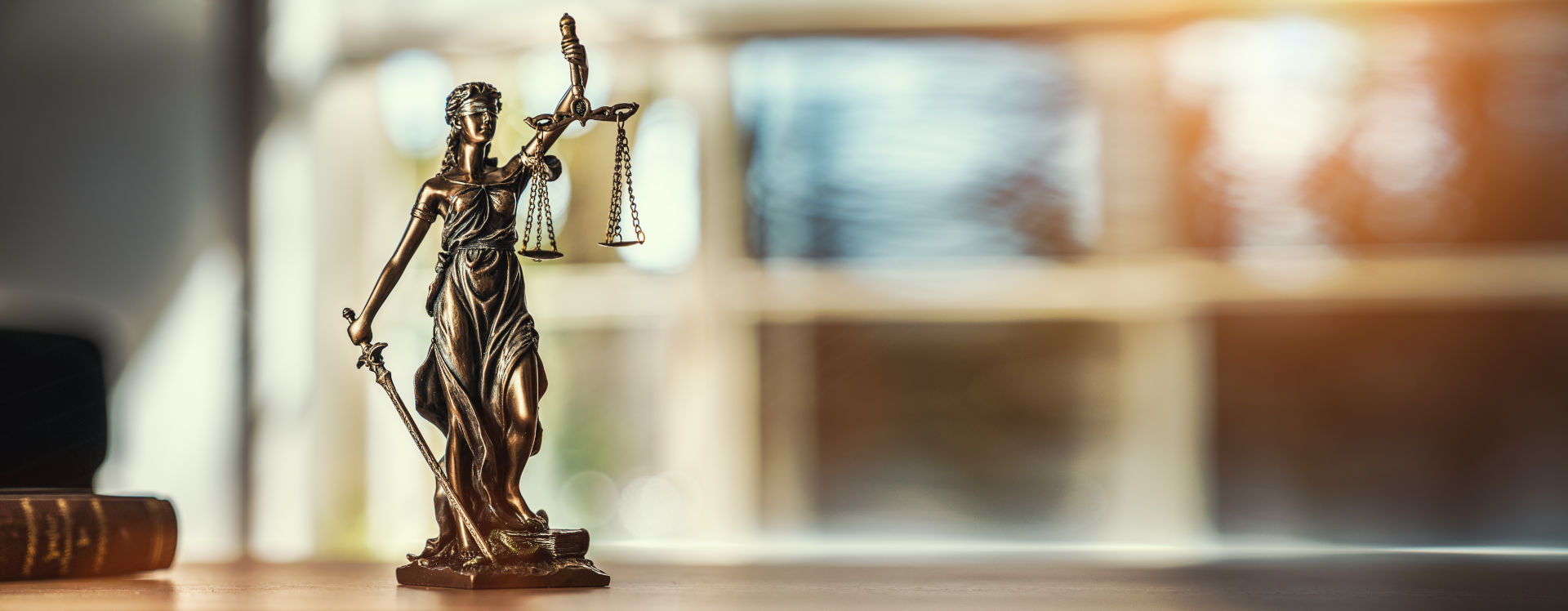
Product Liability Lawyer in Spartanburg, South Carolina
PRACTICE AREA
Description
Product Liability Lawyer in Spartanburg, South Carolina
It is catastrophic when a product does not work as it is supposed to or is dangerous. In Spartanburg, South Carolina, a victim of a defective product is legally allowed to recover for the injuries he or she has suffered.
Knowledge of product liability is important in avoiding liability claims and ensuring that manufacturers and sellers of products are liable for their products.
Product liability is the legal obligation of a manufacturer, distributor, or seller to make good for any harm caused by a product they supplied. Such situations may result from the faulty design of a certain product, problems in its production, or insufficient cautionary or explanatory information.
If you are a victim of a defective product in Spartanburg, you are entitled to seek damages for the harm caused to you. But, the law governing dealing with product liability is not easy, and therefore, requires the assistance of a good lawyer to assist you in getting justice.

Understanding Product Liability in Spartanburg, SC
The main legislation of product liability law in South Carolina is under Title 15, Chapter 73 of the SC Code which deals with the liability of sellers for defective products. It provides that the sellers are responsible for products that are in a defective condition and are unreasonably dangerous to the users or consumers.
South Carolina product liability law is also governed by common law, which are the several grounds upon which a suit can be brought which include negligence, strict liability, and breach of warranty.
Theories of Liability
Product liability claims in South Carolina can be based on several legal theories:
Negligence
The plaintiff has to show that the manufacturer or seller was negligent in the manner in which the product was designed, manufactured, or inspected and that this led to the defect and the injury.
Strict Liability
In a strict liability tort, the plaintiff is not required to prove negligence on the part of the manufacturer and seller but only that the product contained a defect that caused the injury.
Breach of Warranty
This comprises both the express warranties where the manufacturer makes a special promise regarding the product and the implied warranties where the manufacturer is deemed to have warranted that the product is fit for the purpose for which it has been purchased.
Types of Product Liability Claims in Spartanburg
When a product causes harm due to a defect, the type of defect plays a critical role in determining liability. Product liability or personal injury claims can arise from various issues, including flaws in the product’s manufacturing, or design, or inadequate warnings provided to consumers.
Understanding these different types of claims is essential for identifying the responsible parties and pursuing compensation for any injuries or damages incurred. South Carolina recognizes three primary types of product defects that can lead to liability:
Manufacturing Defects
A manufacturing defect is a condition whereby a product is manufactured in a way that does not meet the intended design standards and therefore is in some way substandard or dangerous.
Such a defect is usually found to occur in a small number of units in a particular product line. An example of a manufacturing defect could be a batch of medication that is contaminated during the process of manufacturing, making the medication to be taken hazardous.
In such cases, the product may be well designed, but during manufacturing, there may have been some failure resulting in the product being a ‘lemon’.
Design Defects
This is a defect that is built into the product by the designer and which makes it dangerous despite being produced to standard by the manufacturer.
While manufacturing defects are likely to be apparent in only a small number of products within a given line, design defects can potentially make all the products in a line dangerous.
An example of a design defect is a car model that has a high tendency to roll over due to the design of the car even if it is manufactured to the highest standards.
In design defect claims, the main question is whether there was a feasible safer design of the product that could have been used by the manufacturer and still be functional or that would not have made it unreasonably expensive.
Failure to Warn
Failure to warn, sometimes called marketing defects, are case where a product is not accompanied by the right instructions or a warning of the possible dangers of the product.
This type of defect is not about the design or construction of the product but about the information that is given to the consumer.
For example, if a drug has some negative interactions that may result in severe consequences when used with some types of foods or other medications, the manufacturer has the responsibility of informing the consumers of these dangers.
If the manufacturer has not given adequate warnings or instructions, and the consumer is injured, then the consumer is likely to have a good failure to warn cause of action.
Understanding the various types of product liability claims is crucial for effectively pursuing compensation and holding responsible parties accountable.
If you or a loved one has been injured by a defective product, it’s important to seek legal guidance tailored to your situation. Contact us today at (864) 804-6330 today to book a free consultation with one of our experienced personal injury lawyers.

Types of Compensation in Product Liability Cases in Spartanburg
When you’re injured by a defective product, the impact can be far-reaching, affecting your health, livelihood, and overall well-being.
These compensations aim to cover the economic and non-economic damages resulting from the injury, including medical expenses, lost wages, pain and suffering, and, in some cases, punitive damages.
Each type of compensation addresses different aspects of the harm caused, ensuring the victim is fully compensated for their losses.
Medical Expenses
Compensation for medical expenses includes all costs associated with treating your injuries, both immediate and long-term.
This can cover hospital bills, surgeries, medications, physical therapy, rehabilitation, and any future medical care related to the injury.
Medical bills can quickly add up, especially if the injury requires ongoing treatment or specialized care. Compensation for these expenses ensures that you are not burdened with financial stress while trying to recover from your injury.
Lost Wages
If your injury prevents you from working, you may be entitled to compensation for lost wages. This includes the income you have already lost due to time off work and any future earnings you are likely to lose if your injury results in long-term disability or reduced earning capacity.
The financial impact of being unable to work can be significant. Compensation for lost wages helps to alleviate the financial strain caused by the loss of income, allowing you to focus on your recovery without worrying about your financial stability.
Pain and Suffering
Pain and suffering compensation addresses the physical pain, emotional distress, and overall decrease in quality of life that result from the injury. This can include anxiety, depression, chronic pain, and the loss of enjoyment of life’s activities.Although the pain and suffering cannot be easily measured, this compensation takes into account how a severe injury can affect your life. It is a compensation for the non-economic losses you have suffered.
Punitive Damages
The damages are awarded where the defendant’s conduct was deliberately wrongful, reckless, or malicious.
Punitive damages are different from compensatory damages because the aim of the former is to punish the defendant and show that his or her conduct is wrong and should not be repeated while compensatory damages are awarded to the victim to restore him or her to the position he or she was in before the tort occurred.
Punitive damages may be awarded in some cases but are not given in every case, the additional amount may be substantial enough to enhance the total compensation and at the same time a potent message to manufacturers regarding safety and consumers.
The Role of Evidence in Product Liability Cases in Spartanburg
Evidence is the backbone of any product liability case, serving as the foundation for proving that a product is defective and directly responsible for the injuries sustained.
Without compelling evidence, even the most legitimate claims can falter. In product liability cases, various types of evidence are crucial for the victim in establishing liability and securing fair compensation for the injured party.
Types of evidence that are needed to file a strong case.
Product Documentation
Product documentation includes manuals, instructions, labels, warranties, and any marketing materials associated with the product.
These documents can demonstrate how the product was intended to be used, the warnings provided, and whether the manufacturer fulfilled their duty to inform consumers of potential risks.
If a consumer is injured by a power tool, the instruction manual and warning labels can be critical in determining if the product was defective or if the manufacturer failed to provide adequate safety instructions.
Medical Records
Medical records are vital in linking the injury directly to the defective product. They provide a detailed account of the injuries sustained, the treatment received, and the potential long-term impact on the victim’s health and well-being.
If a defective medication causes harmful side effects, medical records showing the diagnosis, treatment, and timeline of the patient’s condition can be used to prove causation and the extent of the damages.
Witness Testimony
Witnesses can provide firsthand accounts of the incident, including how the product was used, the circumstances of the injury, and the immediate effects.
This testimony can help corroborate the plaintiff’s version of events and establish the sequence of events leading to the injury.
In cases where a product malfunctioned in a public setting, witnesses who observed the incident can testify to the conditions under which the product was used and how the injury occurred.
Expert Opinions
Specialist witnesses, for example, engineers, doctors, or product safety consultants can provide invaluable evidence as to whether a product was defective and whether it was designed and manufactured to conform to the industry standard or safety codes.
This is because, through their testimony, they can explain certain issues that are technical and which are important for the judge or the jury to grasp.
When there is a car accident, an automotive engineer may be required to give evidence about the design or manufacturing defect that might have led to the accident.
What to Do If You Are a Victim of a Defective Product
If you have been involved in an accident caused by a faulty product, then the actions you take right after the incident will determine how well you will pursue your claim.
It is important to act fast and professionally to preserve all the evidence and avoid missing the opportunity to file a strong lawsuit.
Preserve the Product
The defective product is usually the most sensitive piece of evidence in a product liability action.
Leave it as is and do not make any changes to the house, even if the repair is very easy or even if the room needs painting. If possible, safely store the item and take a picture of the item’s condition before the move.
This helps in averting situations whereby the defect is concealed so that the producer does not pay for the damages caused.
Seek Medical Attention
Being a Victim of product liability your health cannot be overemphasized as it should be your number one priority. It is advisable to consult a doctor as soon as possible if not for anything, then for a check-up.
A doctor can determine the severity of your injuries and there could be hidden injuries that were not apparent initially.
Seeking early medical attention not only helps you to heal faster but also produces records that are important in establishing your case and connecting your injuries to the product that is in question.
Documenting the Incident
The first thing that one should do after the occurrence of the incident is to jot down all the details that can be remembered.
Record the events that occurred, the date, the place, and the circumstances of the occurrence of the injury. Record the symptoms, the doctor visits, and any other way that the injury affects your life.
Records help you have a sequence of events of your injury, which is important when presenting your case in court.
Take Photos
Pictures are used to prove that the product was faulty, that you sustained injuries, and the scene of the accident. Capture digital images of the product from different angles, the visible wound, and any other related environment.
Photographs can be very persuasive in proving the defect and the extent of the injury in the bid to claim compensation.
Consulting a Lawyer Early
If you are a victim of a defective product case, getting advice from a product liability lawyer as early as possible is always helpful in your case.
Our experienced lawyer can help you navigate the legal process, and tell you how to assert your rights and obtain evidence that may be destroyed or altered.
Consultation at the onset of the case guarantees that all the processes that are needed in the creation of a solid case are instituted.

How Our Spartanburg Product Liability Attorneys Can Help You
If you are a victim of a defective product, seeking justice is not easy and requires going through a lot of stress. Our product liability lawyers are here for you to help you through this process and to make the most of your case.
Evaluation of Your Case by an Expert
A product liability case must involve a legal and technical analysis of the issues involved. Our lawyers first analyze the case, the product in question, and the type of defect involved whether it is a manufacturing defect, a design defect, or the lack of adequate warning.
With the help of specialists from the corresponding branch, we find out how the defect led to your injury and define the scale of your losses.
Navigating Complex Legal Procedures
Product liability law comprises several complex legal procedures, with such aspects as time limits, paperwork, and legal requirements.
Our lawyers know these procedures and will handle all aspects of your case from document preparation to negotiations with manufacturers, insurance companies, and other lawyers.
We take extra measures to ensure that your case is managed as efficiently as possible with as much inconvenience to you as possible.
Building a strong case with Evidence
Pursuing a product liability claim entails gathering enough evidence to support the case such as the product literature, the medical records, the expert witnesses, and others.
The evidence that your lawyer will compile in this case includes one that our lawyers are proficient in the collection and arrangement of this evidence.
We work with engineers, doctors, and other specialists who can give specific information about the vices of the product and the harm it causes to your health.
Safeguard Your Product Liability Rights
Product liability makes manufacturers, distributors, and sellers legally responsible for harm or losses arising from a defective or unsafe product.
This may include weakness in the design process, manufacturing problems, or failure to give adequate warning information. In case you have been injured by a product, you might be eligible for compensation for such damages as medical bills, lost wages, and others.
Your needs come first when it comes to how we address your legal issues and we make sure to keep you updated always. It is our policy always to make sure that the client is put first at all times.
Now it is time to take the first step towards justice and compensation. Call Max Hyde Law Firm at (864) 804-6330 today to book a free consultation with one of our product liability lawyers.
PRACTICE AREAS
OUR ATTORNEYS

Max Hyde
(864) 804-6330

Samantha Larkins
(864) 804-6330
LET'S CONNECT
Phone Number
(864) 804-6330
Email Address
max@maxhydelawfirm.com
Types of Personal Injury Claims
Car Accidents
Understand South Carolina's laws and procedures regarding car accidents to protect your rights and seek appropriate compensation
Slip and Fall Accidents
Learn about slip and fall accident laws in South Carolina to navigate your claim and hold the negligent party accountable.
Medical Malpractice
Understand medical malpractice laws in South Carolina to protect your rights and seek legal recourse for negligence.
Product Liability
Explore South Carolina's product liability laws to understand your rights and seek compensation for injuries caused by defective products
Workplace Accidents
Navigate South Carolina's workplace accident laws to understand your rights and pursue compensation for injuries sustained on the job
Dog Bites
Navigate South Carolina's workplace accident laws to understand your rights and pursue compensation for injuries sustained on the job.
Nursing Home Abuse
Understand South Carolina's nursing home abuse laws to protect loved ones and take action against mistreatment
Premise Liability
Discover South Carolina's premise liability laws to understand responsibilities and pursue compensation for injuries on another's property
